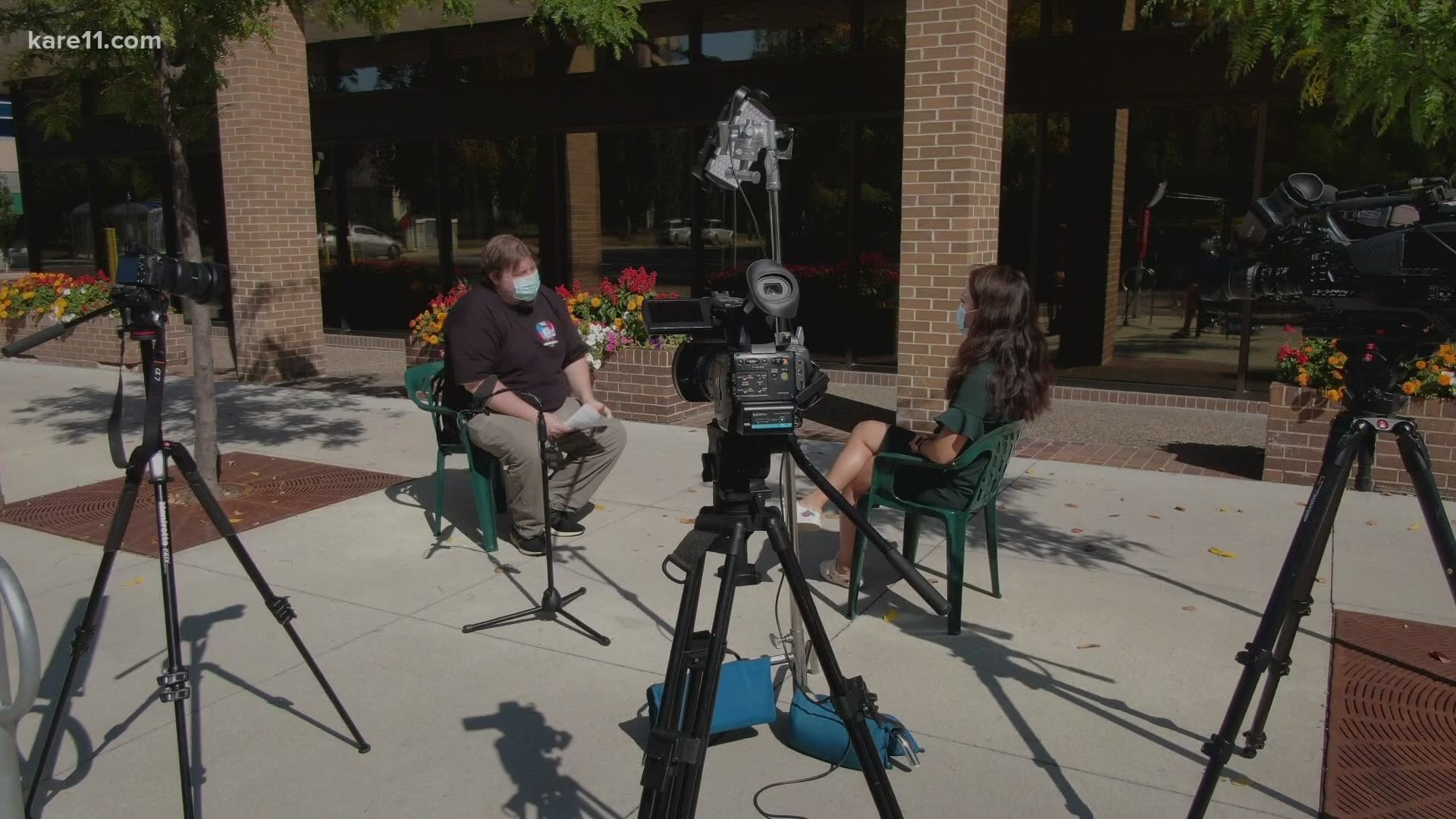MINNEAPOLIS — As the pandemic rages on, we have focused on different parts of our society who have continued to give during this difficult time.
Essential workers: front line workers, grocery store clerks, janitors--all have been highlighted for their incredible sacrifice.
On Thursday, yet another group of essential workers, Metro Transit bus and light-rail operators and crew members, is asking to be compensated for their work.
Under the pressures of a global pandemic, Metro Transit buses and light-rail services have been trucking along, but not without difficulties.
"We recognize that they have been risking themselves," Ryan Timlin said. Timlin is the president of Amalgamated Transit Union (ATU) Local 1005. They represent nearly 2,400 Metro Transit employees. "They've been putting blood sweat and tears to go out and do this, and literally some members-- we're hearing stories of depression, of fear, of spreading this virus in their family. We really recognize how they have been putting themselves on the line."
Timlin said he is familiar with the risks that his union members are facing as he was also a bus operator for 11 years.
"The way the airflow works on the bus, basically the airflow pushes all the air from the back of the bus towards the operator," Timlin explained. "So essentially if someone is in the back of the bus with COVID, and the duration they're in the bus-- eight, nine, ten hours, this makes the rate of catching COVID extremely high."
When asked how many union members he is aware of who have tested positive for COVID-19, Timlin prefaced the number by saying that he thinks they have been lucky so far.
"Right now, around 77 members have gotten it," he said. "But it's probably higher than that for all we know. That's where the number's at. On top of that, we're lucky--many other transportation agencies-- they've had high death rates for contracting COVID. We've been lucky as well to not have that happen yet."
This is where Metro Transit's offer comes in. The Metropolitan Council, in charge of Metro Transit's contract negotiations put on the table, a one-year contract that includes a one-time payment, averaging $1,500 for each employee.
The Met Council also offered an additional three dollars an hour in terms of hazard pay during the end of March, April and mid-May.
The union however, rejected this offer by a 94 percent margin on Wednesday, saying the average of $1,500 isn't fair for all employees and that many were short on hours during the hazard pay period because many were blindsided by the pandemic.
"Not all of our employees would actually receive that, many of them at that time were dealing with childcare, or actually had COVID issues themselves," Timlin said.
In a statement, the Met Council cited unprecedented ridership and revenue losses, saying that they have relied on the CARES act to mostly to pay employees.
Timlin said, that wasn't enough, hence the rejection and the authorization to strike.
"That does not mean it is a strike immediately," Timlin added. "What that means is the members gave the executive board the authority to call for a strike if it is necessary. This would be some time out and we are planning for that but what we want is for them to come to the table and actually negotiate with us."
You can read the rest of the Met Council's statement below:
"Metro Transit has provided a reasonable and responsible offer that balances the unprecedented fiscal pressures facing Metro Transit, with the value we place on our employees during this pandemic.
Our $3.6 million contract proposal will be effective Aug 1, 2020 – Jul 31, 2021 and includes:
• A one-time payment to ATU employees that averages $1,500 per member
• For the average employee, including Bus and Rail Operators, this amount represents a 2.5% increase in wages over the 12-month period of the contract
As part of the existing contract language that will continue forward:
• One third of ATU members receive a step increase of 5% or more during the contract period
• All Metro Transit employees have access to HealthPartners Distinctions & HRA, both are high value/low cost health insurance plans that are not increasing in cost in 2021
During the pandemic, Transit ridership losses have exceeded 65%. Facing unprecedented revenue losses, we rely on one-time CARES Act funding to keep transit services on the streets and jobs for our employees. Staff salaries and benefits are more than 70% of our bus and rail operations and represent the largest use of CARES Act funding.
Metro Transit has also used the CARES Act funding to make significant investments to enhance employee safety.
• Providing flexible COVID leave benefits
• CARES Act funds is paying for the operational changes that focus on the health and safety of our employees and customers
• Adding services to support social distancing standards
• Manufacturing and installing COVID shields prior to returning front door boarding
• Disinfecting buses and rail cars daily
• Providing personal protective equipment for employees
• Providing the staffing and kiosks for daily temperature checks
We are committed to providing a contract proposal that is both fair and responsible."

